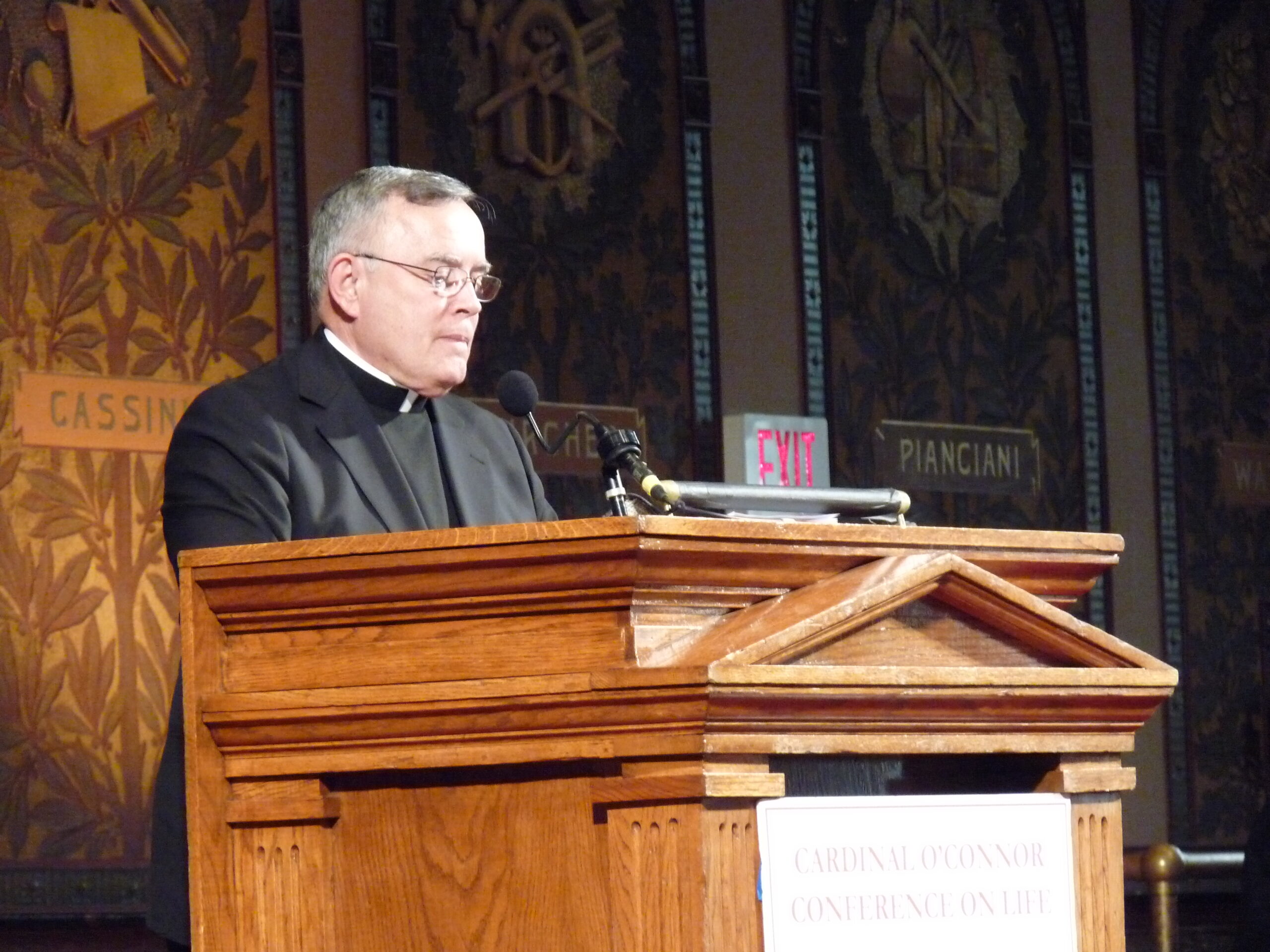|
Getting your Trinity Audio player ready...
|
Above: Charles Joseph Chaput, Archbishop Emeritus of Philadelphia.
On March 8 of this year it was revealed that Cardinal Fernández and Pope Francis are working on a new document to be published in early April, just in time for your Easter meditation. This morning Diane Montagna confirmed that His Holiness had a meeting with His Eminence, which was probably about this document.
At the same time as this was happening, His Excellency Bishop Charles Chaput, the archbishop emeritus of Philadelphia, published his own comments against this pontificate in First Things. They were published online and in the April print edition.
Bishop Chaput is not a “Trad bishop,” but a disciple of the last two pontificates. As such, he praises the “classically Ratzingerian” text of Lumen Fidei, an encyclical began by Pope Benedict and finished by Pope Francis. “[A]s prefect of the Congregation for the Doctrine of the Faith,” he says, “Joseph Ratzinger was one of the greatest Christian minds of the past century.”
But, says, the Archbishop Emeritus,
The rich quality of Lumen Fidei stands in unhappy contrast to every other document of the Francis tenure. It’s a painful judgment, but true.
His Excellency does not pile on Papa Bergoglio, though, but concedes that “his critical attitude toward wealthy nations of the Global North, and especially the United States, is not unwarranted.” Fair enough. Yet he credits the “studied ambiguity” of Pope Francis to a “temptation” which is “intense” to “confirm, or at least to soothe, otherwise well-meaning people in their sinful behaviors and relationships.”
The implication of course, is that Francis has fallen into this temptation. Chaput seems to be saying that this fall explains everything, including the persecution of Trads:
It explains his refusal to live in the Vatican’s Apostolic Palace, his disdain for some of the normal formalities of his office, and his habit of feeding confusion with imprudent, and even provocative, public comments. It also explains his peculiar hostility for the old Latin Mass and the alleged reactionaries who “cling” to it—some of them, yes, bitter backsliders and nostalgia addicts, but others who are merely young persons and families seeking beauty, stability, and some connection with the faith’s past in their worship.
This measured criticism of the Holy Father reaches a crescendo at the midpoint of Chaput’s treatment:
It becomes hard to avoid the conclusion that an undercurrent of resentment is one of the distinguishing and most regrettable marks of the Francis pontificate. Regrettable, because it damages the dignity of the petrine office. Regrettable, because it creates critics and enemies, rather than reconciling them. Regrettable, because it undercuts every pontificate’s central task: providing a credible, faithful source of Catholic unity. And the advisers, apologists, and ghostwriters who surround this pontificate have been instrumental in adding to the problem.
I was particularly impressed with His Excellency’s passing comment against the “popesplainers” who continue to prop up this pontificate. Here we have a bishop who might be described as an “ordinary Ratzinger bishop” who adheres to the New Catechism and is interested in maintaining the status quo which began under John Paul II.
Bishops of this kind have found that the status quo under Papa Wojtyła – with everything else that came before – is increasingly under attack.
This leads Chaput to turn from Francis to Cardinal Fernández, about whom he says, “[h]is thinking isn’t shallow. It’s simply wrong in some crucial ways, with big implications.” He does not need to turn to a Trad voice to condemn Fernández. No, the good bishop turns to “José Granados. The former vice president of Rome’s Pontifical John Paul II Institute for Studies on Marriage and Family—before Pope Francis changed its focus[.]” Fr. Granados summarises the problem with Fernández and Chaput quotes his conclusion as follows:
[Fernández] claims that the Christian people, especially the simple and the poor, possess a special insight into the truths of faith, even though they have little speculative or rational power. There are forms of knowledge of God that elude scholars and that simple people are better able to grasp through lived experience of the divine mystery. . . . This appreciation of the people’s context leads Fernández to write that, instead of sensus fidelium [the sense of the faithful], it would be better to speak of sensus populi [the sense of the people]. The reason for this change is that with the expression sensus fidelium the “believers” can see themselves as separate from one another and thus lose the knowledge that comes from their unity as a people. For there are elements of knowledge that are not accessible to the isolated person but only to the person in relationship with the whole culture.[1]
It seems to me that this is nothing less than a Marxist conception of the sensus fidelium. Hence Fernández, says Granados, “in describing charity, insists that its main external manifestation is to help our neighbors improve their material needs.” So the new document that’s coming out in time for your Easter feast will probably reflect this Marxist angle of a materialist sensus fidelium.
We should be grateful that more bishops are joining the spectrum of “Recognize & Resist.” Undoubtedly, every bishop will find different modes of this resistance, and Bishop Chaput has joined his voice to all the other Cardinals, Bishops, and theologians who have in some way stood up against this pontificate. As it is Holy Week, we should offer up more penances for Pope Francis and Cardinal Fernández, and ask Almighty God for the grace to suffer more perfectly for the faith once delivered to the saints (Jud. i. 3).
T. S. Flanders
Editor
Holy Monday
[1] José Granados, “‘Charity Builds Up’ (1 Cor. 8:1)—but Which Charity? On Víctor Manuel Fernández’s Theological Proposal,” Communio (Winter 2023).


